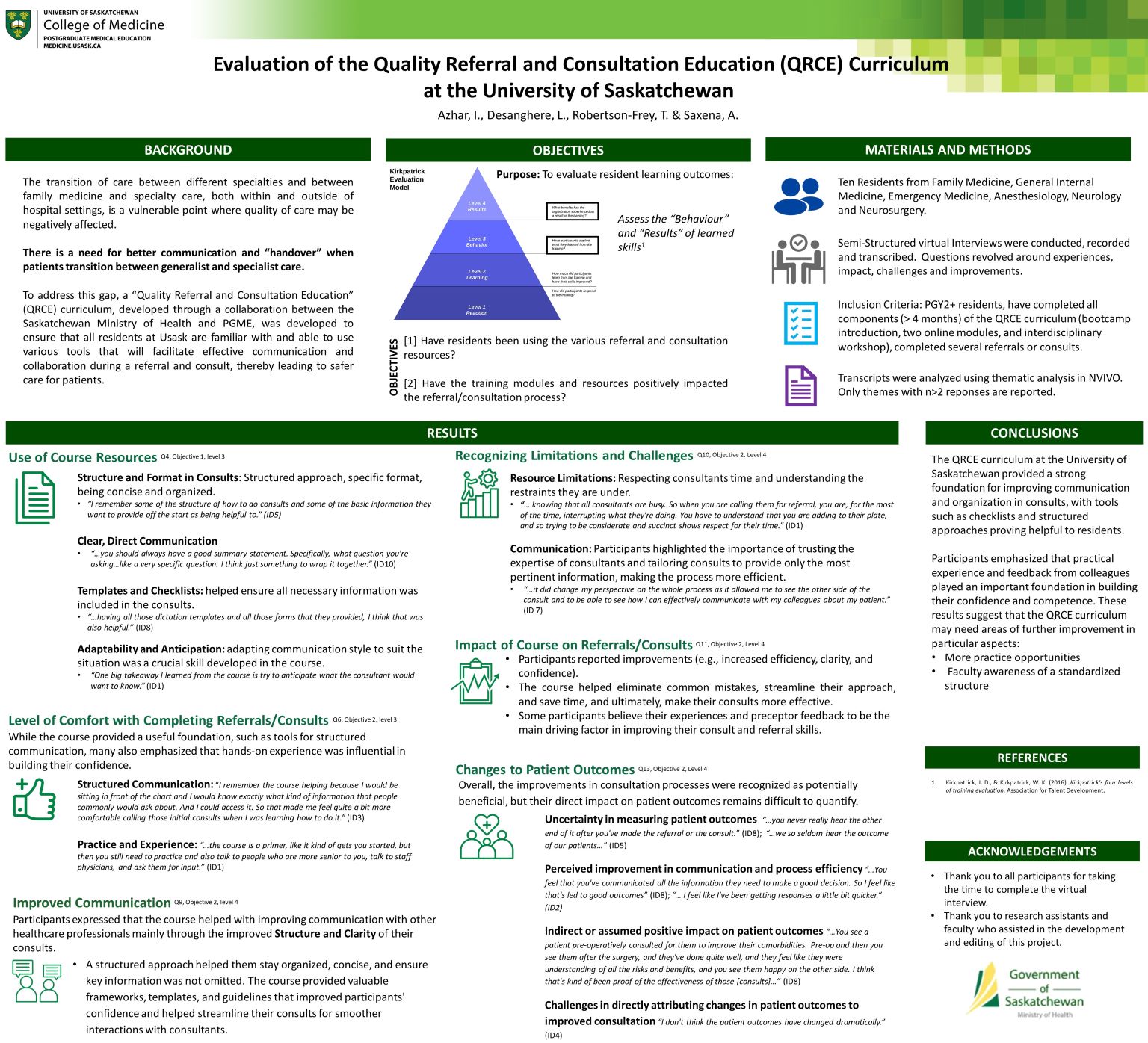
Evaluation of the Quality Referral and Consultation Education (QRCE) Curriculum at the University of Saskatchewan
Iqbal Azhar
Introduction: The Quality Referral and Consultation Education (QRCE) course was designed to improve interprofessional communication during patient care transitions between generalist and specialist care. This study evaluates learning outcomes based on Kirkpatrick’s levels 3 and 4, focusing on residents' application of referral and consultation resources and the impact of their consultation in real-world practices.
Methods: Ten residents participated in semi-structured virtual interviews. Questions revolved around experiences, impacts, challenges, and improvements. Transcripts were analyzed using thematic analysis.
Results: The QRCE curriculum helped residents develop a structured approach to consultations. Templates, checklists, and anticipation of consultant needs were highlighted as valuable tools. While participants noted an increase in efficiency and confidence, some challenges remain, including systemic barriers such as variability in expectations across specialty services as well as a lack of practice cases in the course itself. Overall, the improvements in consultation processes were recognized as potentially beneficial, but their direct impact on patient outcomes remains difficult to quantify.
Conclusions: The findings support the QRCE curriculum’s positive influence on improving communication and enhancing the quality of patient care transitions. Ongoing training, including refresher courses for senior residents and better alignment of referral expectations across specialties has been recommended.
